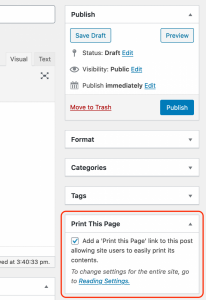There was one feature update included in the OpenLab December release that is relevant for OER sites.
The Creative Commons widget, which was added in the September 2019 release, has been updated to include two new fields for the widget, allowing site admins to specify a site author and author URL for their license.
This means the license statement in the site sidebar can now read, for example, “Unless otherwise noted, this site by Bree Zuckerman has a Creative Commons Attribution-NonCommercial 4.0 International License.” Previously there was no way to easily specify an author’s name.
If you have any questions, please feel free to contact the OpenLab team.





